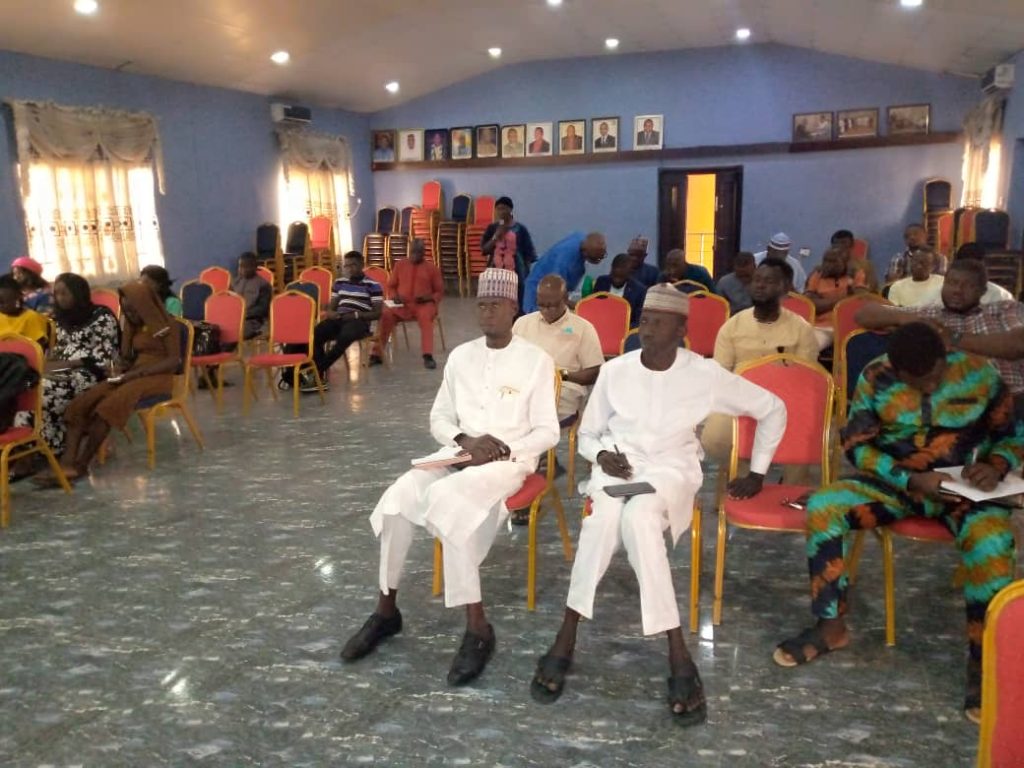
Taraba State Primary Health Care Development Agency with support from UNICEF has commenced the Maternal Neonatal Tetanus Elimination campaign in four local government areas of Taraba State.
Mrs. Mercy Maigoge, State Health Educator disclosed this at a one-day engagement meeting with Media practitioners on the Maternal Neonatal Tetanus Elimination campaign, held in Jalingo.
The meeting aimed to sensitize the media partners on the maternal and neonatal tetanus elimination (MNTE) campaign currently going on in four local government areas of the state.
The LGAs are Bali, Kurmi, Wukari, and Yerro.
The engagement of the media was also on the need for sustained community awareness and education for increased uptake of the vaccines by the target group which is fifteen years to forty nine years old.
Mrs. Mercy Maigoge further explained that the meeting was also aimed at engaging the media in field monitoring, documentation, as well as reportage among others.
She described the media as key stakeholders with the view of achieving the objective of the campaign.
She said that the TD popularly known as (TT) vaccination campaign will last for five days in the designated LGAs, and urged the media to go out and monitor the full implementation of the vaccine during the campaign.
According to her, data showed that the selected LGAs are performing below expectation in regards to the tetanus vaccination, thereby necessitating the campaign to cover up to raise the data to expectation.
Giving an overview, the State team leader, Social and Behavior Change – UNICEF, Jennifer Dabo said the elimination of maternal neonatal tetanus (MNT) is a key area in global public health policy, and it is one of the six childhood killer diseases targeted for accelerated control in Nigeria.
She said the MNTE initiative aims to reduce maternal neonatal tetanus cases to such low levels that the disease is no longer a major public health problem, adding that it is defined as the occurrence of less than one NT case per 1000 live births per year in every district.
“So, in thousand, at least they want to reduce Neonatal Tetanus as little as just one if it is possible,” said Dabo.
Jennifer Dabo noted that in many communities, deliveries take place in unhygienic circumstances, putting mothers and their newborn babies at risk to a variety of life-threatening infections such as tetanus, therefore, she discouraged the engagement of traditional birth attendants and advocates for going to the hospital.
She believes that through immunization of children, mothers, and other women of reproductive age, and the promotion of more hygienic deliveries as well as cord care practices, MNT can be eliminated.
Jennifer Dabo recalled that in 1989, the 42nd World Health Assembly called for the elimination of neonatal tetanus by 1995, and the report shows that 12 countries have not reached the MNTE status, and activities to achieve the goal are ongoing in those countries including Nigeria.
Meanwhile, the new elimination target is set for 2023.
Mr. Detoh Ngasoh, UNICEF State Facilitator, social and behavior change appreciated the media and appealed for a fruitful collaboration.
Sani Sulaiman
